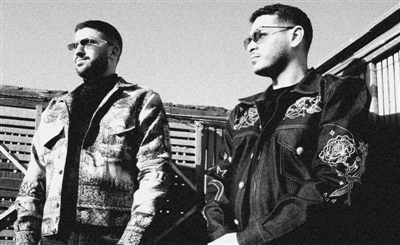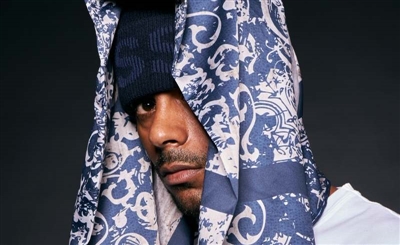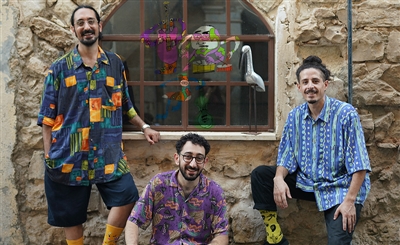In Conversation: Inquisition's Dagon & Nader Sadek
Nader Sadek and black metal band Inquisition sit down for an in depth conversation about Egypt, the harm of cultural pre-assumptions, and dualities.
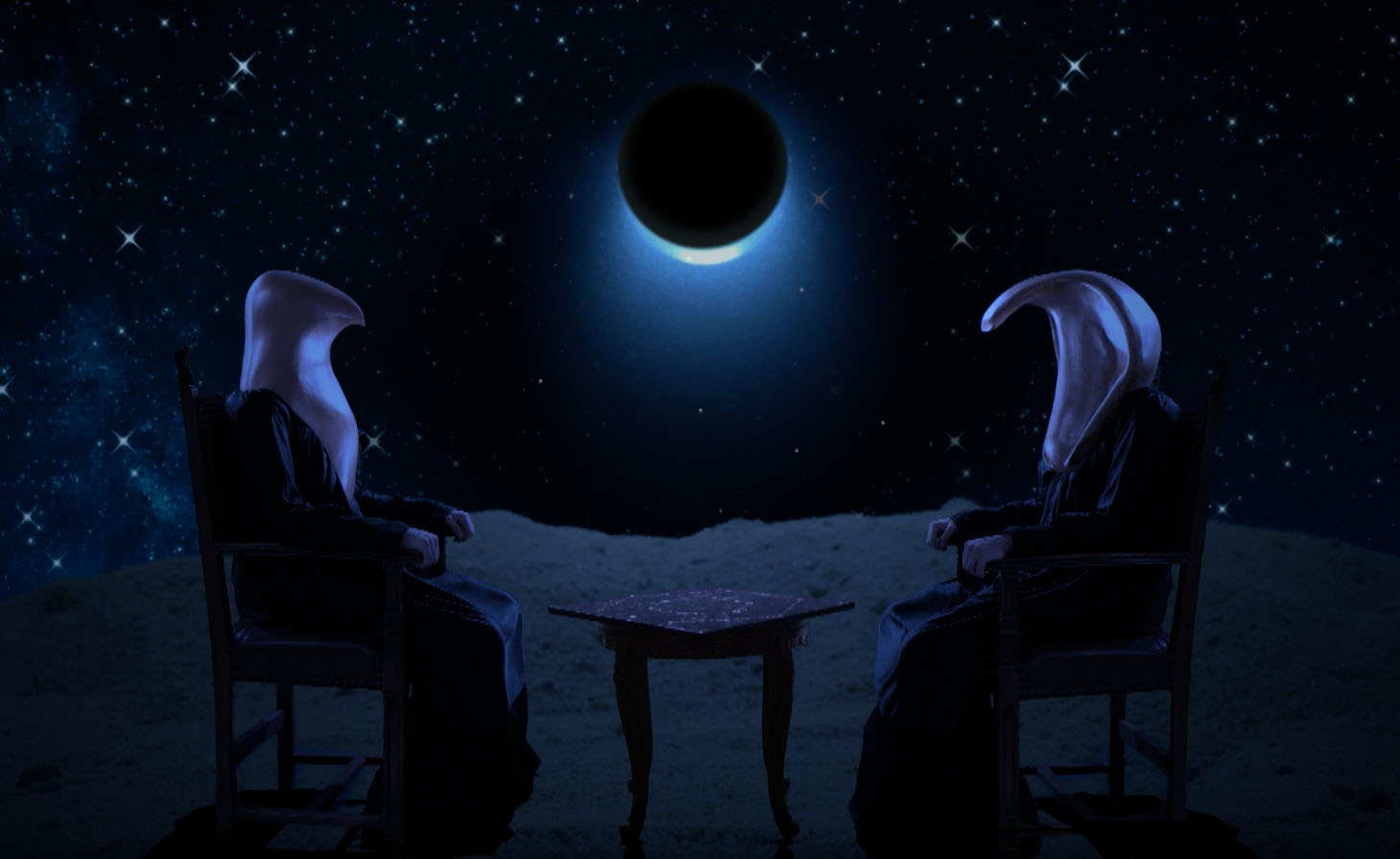
In 2015, Inquisition accepted my invitation to play in Cairo for an early 2016 show, becoming the first established Black Metal band to play in Egypt, astonishing an audience of metal fans who had come from as far as Greece and India to see the Seattle-based, Colombian-American outfit. The show almost didn’t happen, as local forces tried to denounce the band as Devil worshippers and shut down the performance. Instead, with Dubai-based Perversion opening for them, Inquisition, who consist of vocalist/guitarist Dagon and drummer Incubus, diabolically staggered hundreds of fans with their music on the fringes of Tahrir Square.

Inquisition spent three nights in Egypt, and we struck up a great friendship. Almost a year later, both my band and Inquisition were invited to perform at Portugal's best outdoor festival, SWR in Barroselas. Once we were reunited, the two members of Inquisition, Dagon and Incubus, asked me to direct their upcoming music video, “From Chaos They Came.” Of course, I couldn’t decline; I shot narrative imagery in Egypt, which was then cut with band performance footage, to evoke a kind of surrealist Pharaonic creation myth.
Dagon of Inquisition and I discussed their memorable and surreal experience performing in Egypt along with my creation of the music video here:
How did you feel entering Cairo, aside from the controversy created around the show by some of the local bands?
We felt the warmth and the welcoming from the locals, it felt safe. It felt as comfortable as me being at home. A realistic answer is to compare it to Latin countries like Portugal, Spain, and also Greece, as well as the Americas in Mexico and Colombia. Very positive, authentic and welcoming, there is a warmth to the people. A funny story was actually when we arrived at the airport, the very first Egyptian we talked to, right after the baggage claim section, asked us what kind of music we played. Before we answered, he interrupted “black metal?” with a big smile on his face. I was very surprised!
<iframe width="800" height="450" src="https://www.youtube.com/embed/VbX3mo6E2Yg" frameborder="0" allow="autoplay; encrypted-media" allowfullscreen></iframe>
One of the reason I brought Inquisition to Egypt was to expand the horizons on art and culture here. If a country and its own homogeneous culture are not exposed to new arts, then the country itself intellectually collapses. Especially with an art form such as black metal, which aims at breaking down barriers, the status quo needed to be changed.
Definitely. Correct me if I’m wrong, our show took place in downtown Cairo?
Exactly.
We were all sweaty and we had just finished the show, and you came up to me and asked if we would be willing to go outside into the street outside the venue and meet the fans.
Exactly. I wanted to break that barrier, the awkwardness, and the perception of the layman. And no one was bothered. They were surprised by your appearance, of course, but it was also understood as an art form.
Yes, it was very positive, and when you asked us, we immediately said “yes.” I’m very proud of the fact that we also did not buy into the preconceived notions the West has about the Middle East and North Africa, in that it would have been dangerous for us to walk outside with corpse paint and stage attire. So that was huge. But the next day too when we went and walked around the pyramids, the people in the street came and greeted us.
That was amazing and I think the photos actually express that. You are so intimidating and then there is a little Egyptian girl and two veiled girls who are excited and giddy to pose with you.
The clash of cultures, the paint on a face - it can be the paint of a clown or something monstrous and scary looking. It was very meaningful in that sense. If we weren’t with the corpse paint, we would have looked like normal foreigner-tourists. But as soon as we have this intense paint on, in the streets of Cairo, we’re not just foreign, we are alien. It was interesting because even if it was in the streets of Vienna, it would have still been an experience, with the fans being around us, so doing it in Cairo was powerful and profound. Some Westerners would think that the experience would have been different, that we would get beaten with sticks by religious extremists, or get spat at, but none of that happened. And this is because of the “knowledge” Westerners get through the mainstream media and TV that tells them to think that way.
The immediate reaction of the locals was perfect, because it was a welcoming curiosity, as opposed to defensive, which is what the media will feed off. The media actually creates the situation and then tells the people how to feel about it. But everyone's reaction was being star-struck without actually knowing Inquisition. There was no ill intent, and no incentive to seek something negative. And I knew that this is how the average person here is like, generally they try to look for something positive first. So, similar to your last sentiment; the problem is the ones who lead them to think negatively, which is the media or any person with a degree of fame and influence.
When there are cultural divides, they clash – it’s a human condition. It’s in us. In the course of over 150,000 years, there has always been discord among tribes, then cultures, then nations, etc. When you think about it, you realize that self-righteousness is the biggest problem in that whether it’s a religion or an organization, their belief gives them permission to be right. The clash between these nations or cultures or religions is the fear of their own extinction, that one will conquer the other and annihilate it. We are more spiritually inclined to what is higher and greater than us. Inquisition is about breaking down barriers, that is truly the Satanist spirit. It’s about the greater cosmic elements.
<iframe width="800" height="450" src="https://www.youtube.com/embed/K2TFvflGWEo" frameborder="0" allow="autoplay; encrypted-media" allowfullscreen></iframe>
I’m glad you mention the “Satanist spirit.” In our previous conversations, we’ve discussed the fact that Satanism is “a philosophy that is not a philosophy”- an ethic without boundary. It is not an enemy of religion by default. I believe there is a massive confusion between “Satanism” and “Devil worship,” and that is exactly what our opponents in Egypt use to create media terror. Devil worship, the term itself or if there is an action behind it, is completely nonsensical, which makes it even more obscure and thus frightening to the masses.
Metal music is rebellious by nature, and the Devil can be used as a symbol of a defiant force. When you’re young and rebellious and you want to appear greater or stronger than anyone actually above you, and the Devil represents the ultimate rebel. And it is said that our nature is to become rebellious when we are young and starting to grasp life and the world, essentially those teenage years. I prefer to say our nature is to be curious, to see what is on the other side of the mountain. It’s sometimes thought that curiosity is sinful or not allowed. And when we are shunned from a simple action, we internalize the curiosity, which evolves eventually into rebellion which is always with a cause. Some people will choose to think of Satanism as evil; I’m not interested in that, it’s not about that--it is a philosophy that shouldn’t intimidate anyone.
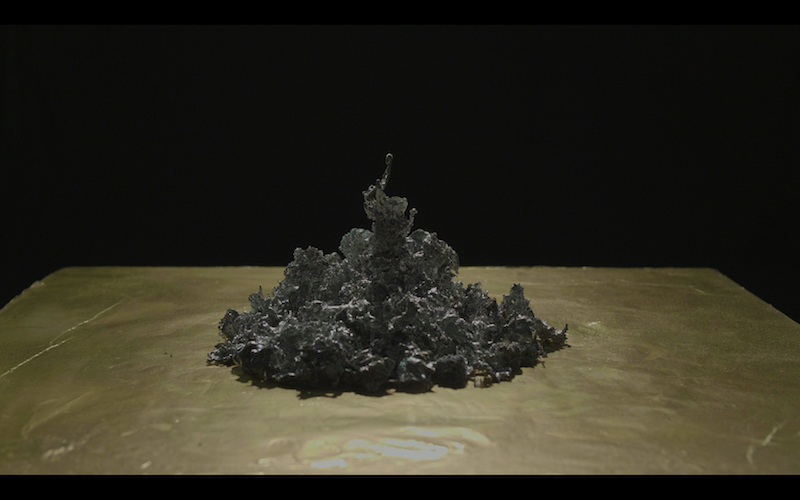
Having said that, I believe that the song “From Chaos They Came,” for which I directed the narrative part of the video, is a perfect choice to be showcased because I think its theme really encapsulates your concepts.
Yeah, the stripped-down way to explain the song is that the universe, we’re told, formed from a massive explosion or something very chaotic. From this destructive force life was formed, the microbes and the enzymes along with the water, creating this blend that is expanding. Earth was created and we appeared in a very small sliver of time, almost out of nowhere. Another part, “They,” is a metaphor for the life force that preceded us, as Gods or higher life forms, and that they came from the beginning which was the chaotic explosion, and such destruction caused life to bloom.
I’m very intrigued by this concept, because I’m attracted to the idea of dualities; that everything is simultaneously its own opposite. This was a strong basis of the album cover for Across Zenith and consequently a big inspiration for the visuals of the music video I came up with. Dualities are important because the two polarizations create movement, and movement is alive in a sense. That's why its opposite is stillness and death.
For me everything we do is a duality, everything we do has an opposing force, it’s in everything: destruction and chaos, Earth and creation, the greatest display of duality, life and death, positive and negative. The ancients in Egypt, Sumeria, Mesopotamia were the first to write about this. With the battle scenes of serpents vs birds, or reptiles vs flying creatures, I thought it would be interesting to see what coincidences or synchronicities you would come up with. That idea of two opposing deities, the duality entwined into one, and then there's something extra that you did, which I really loved, which was to introduce a third character who is the master of those deities, who I named the “Cosmic Master” (laughs).
Yeah (laughs) I think that name suits him perfectly. As for his inclusion, that's exactly what I was going for: I wanted to add a twist, that they have someone to answer to, and that it’s an authority. At the same time those deities have sub-deities who are subjected to fight each other in a chess-like game. In a way, it’s a never ending downward spiral of sub-deities, as it is an upward spiral for master deities.
There is so much more metaphor, and a lot of attention to detail, from the sharp lines of the masks of the falcon and the serpent, to the fractal mask of the cosmic master. And we can feel that there is a profound concept behind this and a big topic, and it feels like hand-made work; actual art. But with this you can feel you were making something for a greater purpose and not just doing something for a metal band. The closeness to the concept shows through the spirit of the work itself.
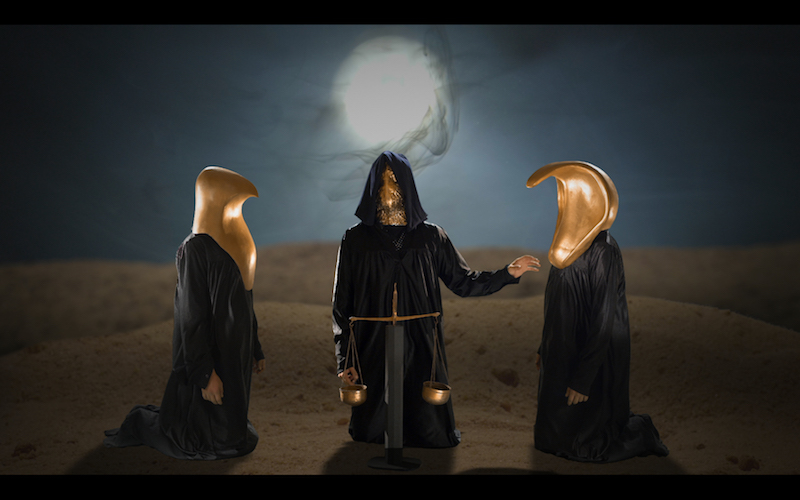
Follow Inquistion on Bandcamp.
- Previous Article Getting Abyusif
- Next Article The 11 Leading Underground Nightclubs in the Middle East



